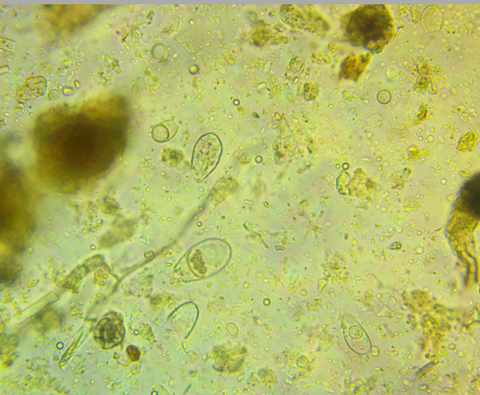One of our most important missions is to shift coffee farming towards a biological and environmentally friendly approach. One task we undertake at the source is to teach coffee farmers how to produce high-quality compost. Compost helps restore soil while attracting beneficial organisms.
It is crucial to mention that I’m familiar with compost theory. I studied different composting methods, the necessary ingredients, the required tools, and the ways to evaluate the results. However, as with many things in life, there is a significant difference between theory and practice, and the devil is often in the details.
I visited José and Carmenza, the coffee farmers from Boyacá I mentioned in my last memo, and we began to create our compost. The first challenge we faced was the collection of ingredients; to produce high-quality compost, you essentially need (i) green material, (ii) woody material, and (iii) material high in nitrogen. All materials ideally need to be cut into small pieces to facilitate decomposition so we had to manually cut the grass and logs into small pieces using machetes, working under the full heat of the day.
The second significant challenge we had to confront was ants. José and Carmenza's farm had a particular ant problem—they were everywhere! And guess what? They loved to eat cow dung, one of our key ingredients for compost. After several ant bites, we had to pause and devise ways to repel them before continuing with our task.
Finally, to produce quality compost, the pile must reach a certain temperature. This is done to prevent the development of unwanted microorganisms. We discovered the importance of nitrogen-rich material in achieving this when we noticed that the pile we had made did not reach the ideal temperature. We realized that our nitrogen-rich material (cow manure) was not fresh, resolved by collecting manure freshly from the cow. The pile's temperature increased almost immediately. Definitely, composting is not a simple task, but as we learn from our experiences, we can change for good, one farm at a time.
With love,
Manolo





Comments (0)
There are no comments for this article. Be the first one to leave a message!